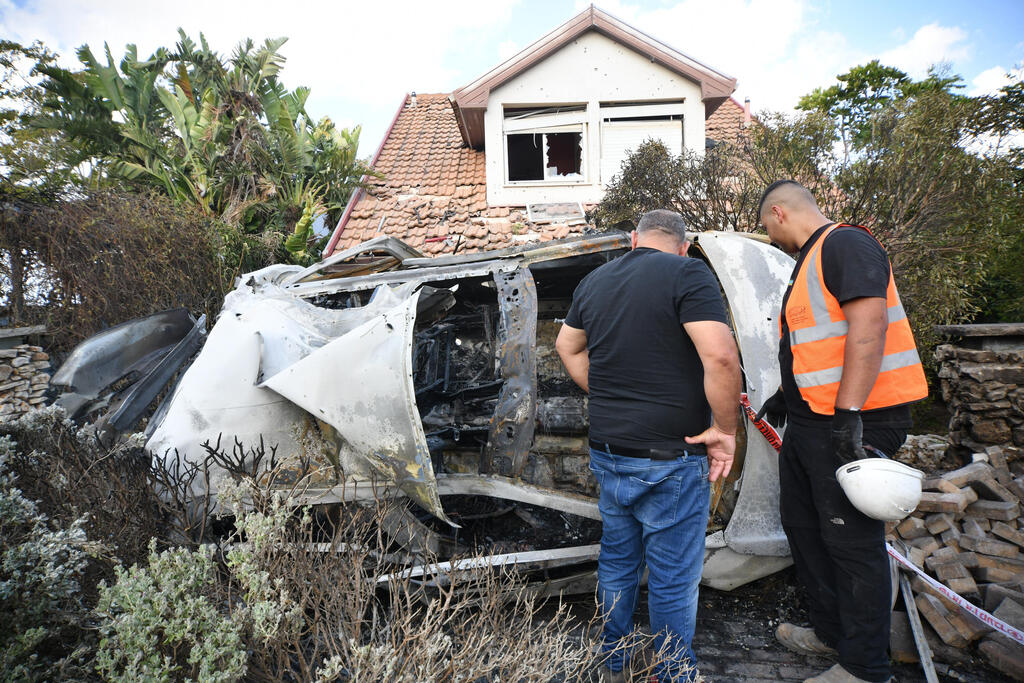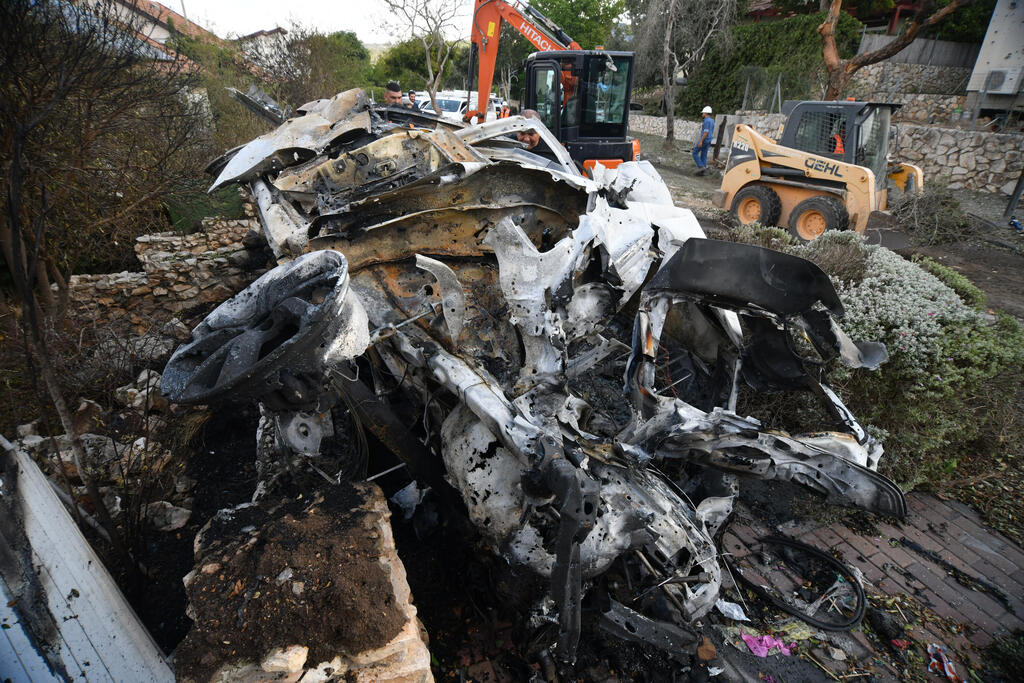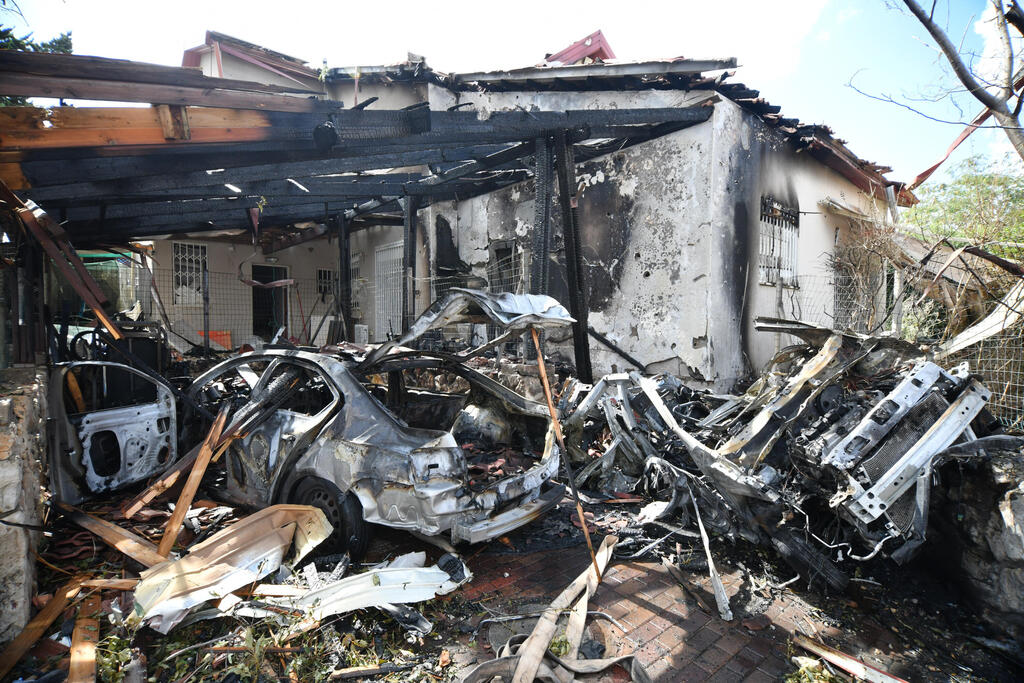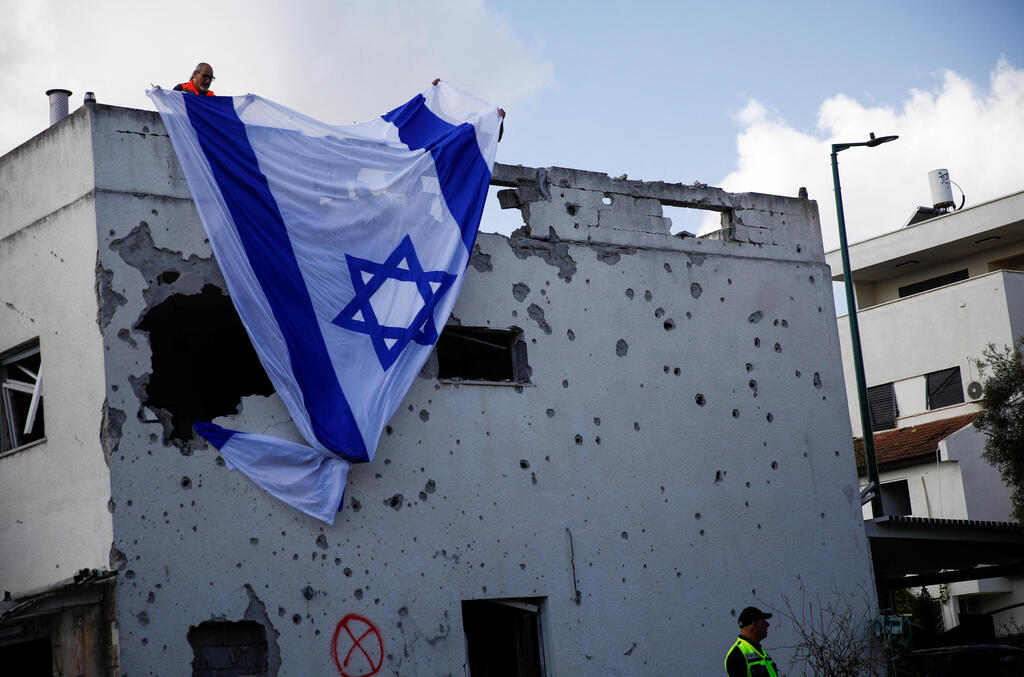Getting your Trinity Audio player ready...
Direct hit by a Hezbollah rocket
Two heavy and long-range rockets struck the streets of the small community of Moreshet in Lower Galilee causing extensive damage. Vehicles were sent flying, and many homes suffered shrapnel and blast damage. Moreshet was one of the primary targets of Hezbollah's fire during the barrages late on Saturday and into the morning hours on Sunday.
hundreds of rockets, cruise missiles, and UAVs were launched toward Israel overnight and during the morning, mostly targeting the north. Air defense systems intercepted the majority of these projectiles. Starting at 7 a.m., following multiple rocket salvos, sirens blared in the southern Golan Heights after a UAV launched in Iraq, neared the area, and shortly after noon, a series of sirens sounded in Kiryat Shmona and the Upper Galilee due to suspected aircraft infiltration.
Damage in Moreshet
(Video: Nachum Segal)
The home of Moti Parish in Moreshet was severely damaged by a rocket that struck the parking lot in front of his house. Parish, who was widowed last year, lives alone. His children who live in neighboring communities assisted to remove whatever belongings that were undamaged, from the home.
"We did not have sirens here since the war started. Throughout the night, there were heard the sirens for all around us and at 4 a.m., the siren in Moreshet was activated and I decided to stay here and sleep in the reinforced room. At 6:30 the rocket landed and the clock stopped. Books fell in the reinforced room, and I didn't understand what was happening," he said.
"I've lived here for 27 years. I never thought I'd be in the line of fire, he said. "Mentally, I don't feel traumatized or anything like that right now. I understand there's no choice but to engage in this campaign. What alternative is there if not a military one? We can't leave the situation as it is. We must continue with full force. Logically, there's no point in making an agreement with them (Hezbollah). Any agreement signed with them is just a truce and a sign of weakness."
Hanna (Agnes) Hartman, a resident of the community, recounted the tumultuous night: "I heard explosions somewhere far away, and I thought to myself, 'Oh no, they're getting closer to us.' So this time, it was bigger. I was glad the kids came to my house because my bedroom is reinforced with concrete," she said.
How do you feel seeing the extensive destruction and your car in the garden?
"Unfortunately, I'm old enough and have been through many things. So I say, 'God Almighty, why again, when will it end?' I pray and hope for peace."
Itay Abecassis, married with five children and a resident of Moreshet who came there after being evacuated from Kiryat Shmona, was on weekend leave from reserve duty. "Houses next to us took a severe hit, and our house has shrapnel in every corner, windows were torn from their hinges. Our cars were burned and destroyed. It's a tough feeling. You're lost. We have no home in Kiryat Shmona, which we left a year ago, and we have no home here," he said.
Linoy Amzaleg, 16, was injured by the rocket fall in Kiryat Bialik and was taken for medical treatment at Rambam Health Care Campus. "We went out to see what happened because it was a serious boom, it hit me as if it was an explosion and fire entered the safe room. I felt like something was dripping on my face, and I thought maybe it was because I was crying, so I wiped it and saw blood. I have headaches, and pain in my face and the whole side is swollen. We miraculously survived; it could have ended completely differently."
The Rambam Health Care Campus in Haifa, began transferring patients from various departments to the underground facilities, set up when the war in Gaza began. A car park in times of peace it was adapted to serve as a hospital ward after it became clear in the wake of the 2006 Second Lebanon War, that there would be a need to treat the civilian population in a protected area.








